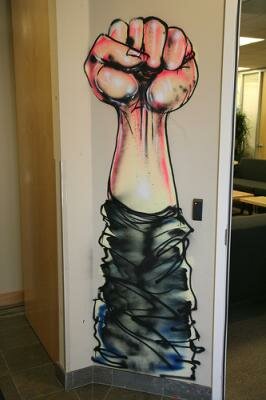Facebook Jihad
Social networking sites have become a potential site for recruiting terrorists.

On Jan. 4, 2011 the governor of Pakistan’s Punjab Province, Salman Taseer, was killed by one of his bodyguards, Malik Mumtaz Qadri. In Qadri’s confession, he cited Taseer’s vocal opposition to the country’s blasphemy law as his motive. Within a few hours of this assassination, a Facebook page for the alleged killer was created, which gathered nearly 2,000 fans in an hour. Hundreds of people wrote messages praising the killer. Although the page was removed shortly afterwards, this incident represents an emerging scenario where social networking could become a tool for the proliferation of radicalisation at a much faster pace, and with much less control than through conventional websites.
In recent years, Islamist extremists have been increasingly active on social networking sites. In most cases, these sites are openly accessible to anyone with an Internet connection. Social networks play a useful role when there is a clampdown by authorities on traditional means of news dissemination; for example, in Iran and Burma they have played a vital role for the democratic movements. But there is a high potential for its misuse.
How ideological extremism is spreading through social networks is indeed an enigma. It can be claimed that cyber radicalisation is a safer, faster and successful strategy for extremists. Although social networking groups seem to lack a concerted ideological pattern, one thing is common: they all use an extremist interpretation of Islam in their rhetoric for attracting Muslim youth.
Facebook provides an ample opportunity to socialise in extremist circles.
Involvement in violence, it is often argued, needs to be preceded by a prolonged process of “socialisation”, in which perceptions of self-interest diminish and the value of group loyalties and personal ties increases. And social networks like Facebook provide an ample opportunity to socialise in extremist circles.
Today, cyberspace is as important as the real world in countering and pre-empting the threat of terrorism and ideological extremism. Terrorists and their supporters already use the Internet to disseminate propaganda, raise funds, procure supplies, plan and prepare operations. Both governments and their partners in the private sector should collaborate to prevent terrorist and extremist organisations from utilising this new medium. Unless governments act responsibly, terrorists and extremists will exploit Facebook to divide rather than unite ethnic and religious communities.
The power of Facebook
In terms of the number of active users, social networking sites have tremendous influence. Facebook alone has 500 million (as of July 2010) active users globally. In Asia, it is fast becoming one of the region’s leading social networks. Currently it has 59.6 million users in the region. Pakistan has some 1.8 million Facebook users.
With 43 languages and 60 more in the pipeline, Facebook is becoming the biggest social network in the world. There are also other popular social networking sites (like Twitter, YouTube, and MySpace) that have become tools for cyber radicalisation. Online social networks seem to be the preferred medium for radicals who want to create a new culture of jihad while taking full advantage of the technology. The target group is young Asian Muslims and their counterparts in the diaspora communities in the United States, Europe and Australia.
The example in Pakistan after the assassination of the governor is a wake-up call to the world to not underestimate the threat of rapid radicalisation through social networking. Monitoring and evaluating potential threats on these sites is extremely difficult. The reasons include the vast size, linguistically and culturally diverse user base, and a lack of verification of user-supplied biographical information. In-depth research on social networking might be useful for demystifying the sociology of radicalisation within Asian Muslim communities. Such research initiatives will play a valuable role in developing our understanding of the Facebook jihad so that it can be addressed with foresight and in an enlightened manner.
Iftekharul Bashar is a Senior Analyst at the International Centre for Political Violence and Terrorism Research at the S.Rajaratnam School of International Studies (RSIS), Nanyang Technological University, Singapore.
This article was originally published on RSIS Commentaries in February 2011.

















